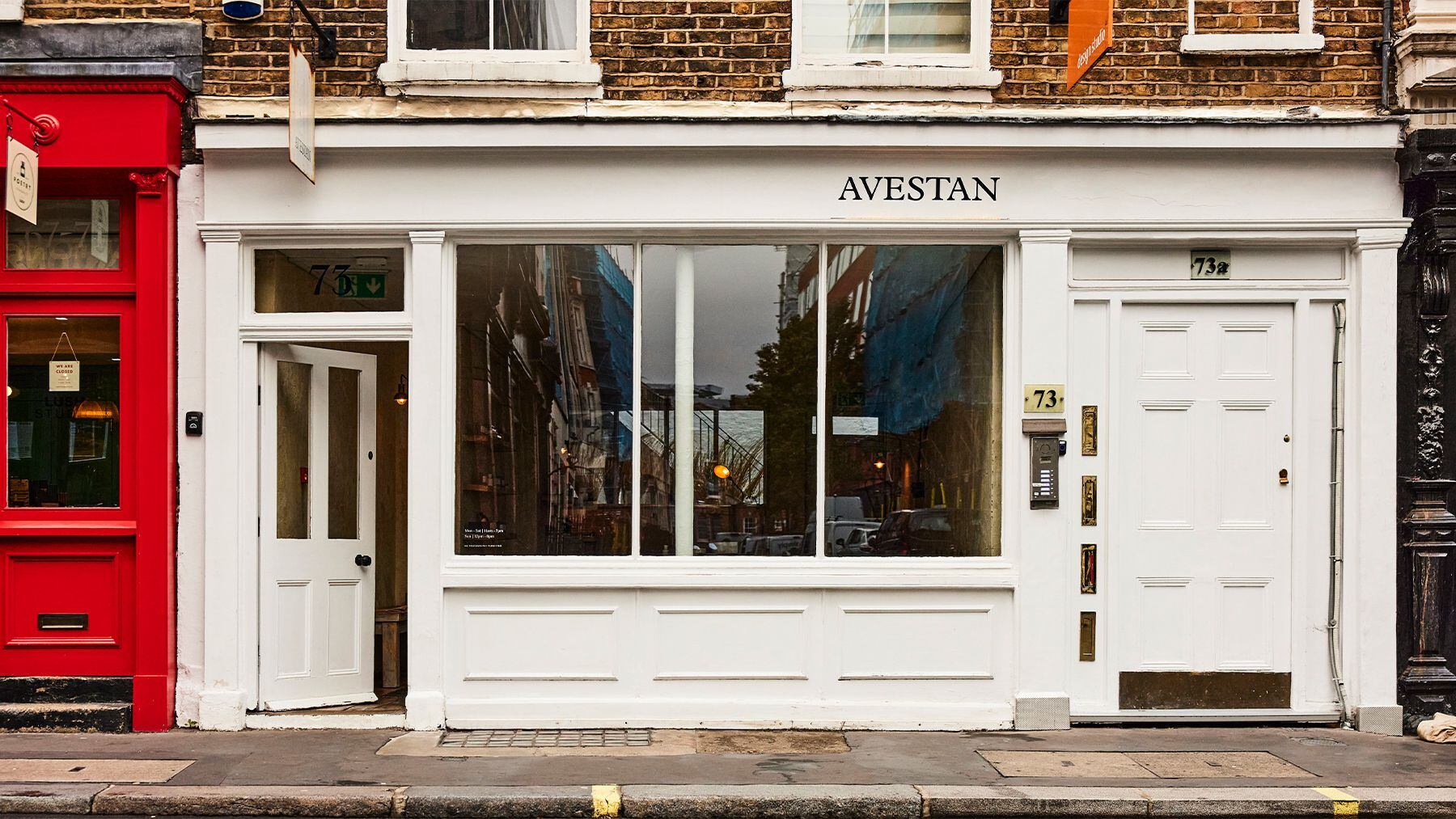
Selling a single product in a single store without e-commerce, and without having spent a cent on advertising, is not exactly a standard go-to-market strategy — especially in the ultra-maximalist beauty category.
Yet that’s exactly how fragrance brand Avestan, which started as a passion project under Deciem, launched in 2019. It has since garnered cult status among beauty fanatics, not to mention surging sales.
It’s even proved a contender to the jewel in Deciem’s crown, The Ordinary. An enduringly popular brand, the affordable skin-care line was a bright spot in parent company Estée Lauder’s otherwise bleak earnings last month, with strong double-digit sales growth in every region. But for one week in September, Avestan out-sold The Ordinary’s bustling Covent Garden store. The store is expected to take in $1.25 million in sales this year, the company said.
Avestan walks a fine line. By limiting distribution to one door whilst also maintaining a low price, Deciem has created cult appeal usually only found in fashion. It’s reminiscent of streetwear brands like Supreme, which operates a drop model, and New York label Telfar, which popularised a tote bag that gained such traction amongst Brooklynite creatives it was nicknamed the “Bushwick Birkin.”
Deciem now plans to capitalise on Avestan’s success with a carefully controlled new assortment of products, including a candle, and is preparing to open a second store by end of 2024.
Aided by perhaps luck or prime real estate, the if-you-know-you-know insider appeal of the brand has allowed it to succeed against the odds. For now, consumers perceive it as authentic. If they see a more concerted commercialisation from the brand, it could lose a little of its magic.
“Exclusivity is a valuable currency,” said Sable Yong, beauty editor and co-host of the fragrance podcast Smell Ya Later.
The Avestan Story
In 2019, Deciem, the family of brands best known for the affordable skin-care line The Ordinary, inked a 10-year lease for a small retail space in London’s trendy Soho. Its founder, Brandon Truaxe, had passed away suddenly at the age of 40, and the company wanted a physical space to honour him and continue his legacy, which includes pioneering the “price transparency” movement in beauty.
Before his death, Truaxe created a number of fragrances that weren’t released. Deciem, which sold a minority stake to Estée Lauder in 2017 and later a controlling stake to the beauty giant four years later, decided to launch just one from the vault, eschewing any marketing, advertising or influencer gifting. The company priced it a modest £38 (approximately $48).
“We thought we’d be lucky to break even,” said Deciem co-founder and chief executive officer Nicola Kilner, adding that Avestan was not supposed to be a commercial project but rather a heritage-driven one.
But gradually, sales began to pick up, with a small rise in August 2021, another in June of 2022, and a sharper, more sustained rise in August this year, Kilner said. She can’t pinpoint a specific, singular cause like a viral video or a press feature, especially as the brand does not do gifting, nor allow filming in store. Their insights point to the ongoing recovery of international travel, especially from China and the Gulf region, and a grassroots social media campaign. At one point, the store had to close for six weeks to replenish the inventory, as it had sold through what Deciem projected to be five years of stock.
Kilner said insights from store staff about customers made them aware of the brand’s popularity on Redbook. Xiaohongshu, also known as Little Red Book or just Redbook, has over 100 million users and is designed to provide reviews of beauty products not readily available in China.
Yong said the seamless payment integrations in China that make app shopping so easy can be a turn-off after a point. “There’s something special about going into a store and having an offline experience,” she said.
Supply and Demand
Beauty cult products exist, and often in fragrance — Le Labo Santal 33 and Maison Francis Kurkdjian Baccarat Rouge 540, for example — and they do go out of stock sometimes due to overwhelming demand. But they’re usually on shelf at your local Sephora, or with some kind of one-click availability online.
For Yong, Avestan’s magic is in its accessible exclusivity. “The drop model has become a type of marketing on its own,” she said. “[This kind of distribution] has also gamified the whole thing.”
Meanwhile, Avestan’s complete lack of advertising takes a page out of the luxury playbook, said Mario Ortelli, managing partner of advisory firm Ortelli&Co. Many high-end brands, such as Goyard and the fragrance house Fueguia, don’t advertise, and even well-known names like Hermès tightly control access to their best sellers, Ortelli said.
While some might baulk at such a restrictive approach, Yong said that consumers, especially the Gen-Z cohort, relish being toyed with and breadcrumbed. It’s part of the thrill of the chase, and the low price point will only add appeal, she said.
A drop model might work to satisfy broader demand whilst retaining exclusivity. Limited editions, such as Le Labo’s “city exclusives” — scents that can only be purchased in a certain locale — or slightly different designs for bottles and packaging is another way. Merchandise, too, is another option. Glossier, for example, offers collectible items like wash bags and passport covers that can only be found in certain cities.
What’s Ahead
Given the breadth of the product library Truaxe left behind, Deciem said it has plenty of products it could roll out. But future launches and expansion will have to be done so with great care to avoid losing its charm.
Avestan doesn’t need a grand precise plan for the future just yet, according to Ortelli. There’s nothing wrong with figuring it out as they go, he said.
But carefully selected neighbourhoods, well-trained store staff and word of mouth can go a long way.
As the team searches for Avestan’s potential second location — New York and Amsterdam were both floated, though not confirmed — the focus will be on carefully managing the next batch of drops, starting with a candle and a fragrance oil, Kilner said.
Kilner is optimistic, though still reeling from its overnight success. “We’ve been asking ourselves, what if we could actually build this to be something that has longevity?” she said.
On a cold November weekend, while surrounding stores touted their Black Friday offers, a queue out the door and down the street patiently waited outside the Avestan store.



